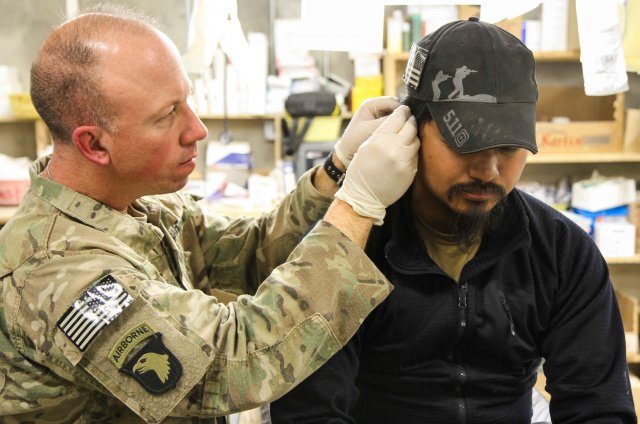Results for: bravewell collaborative
How Can Smart People Be So Stupid?
This is a quick posting that begins to respond to the question posted today by Joe: What I don’t understand is why the majority of doctors at Columbia did not say “This is obvious abuse of patients, and it will not be tolerated here.” Given his richly-deserved malpractice record, why was [Gonzalez] even associated with Columbia? David Gorski answered it in part:...
The infiltration of complementary and alternative medicine (CAM) and “integrative medicine” into academia
A few years back, my co-blogger Wally Sampson wrote a now infamous editorial entitled Why the National Center for Complementary and Alternative Medicine (NCCAM) Should Be Defunded. When I first read it, I must admit, I found it to be a bit harsh and–dare I say?–even close-minded. After all, plausibility aside, I believed at the time that the only way to demonstrate...
Collision of Incompatibles
Last week’s post was about a recent (October 2007) meeting held at Harvard University on the subject of fascia. The purposes for commenting were several. First, the organizers were partial believers in some forms of “Complementary and Alternative Medicine” (“CAM”), now being called “Integrative” but more realistically called sectarian or anomalous, aberrant medicine. The meeting is another in a long series of...

Selling “integrative oncology” as a monograph in JNCI
The Society of Integrative Oncology publishes its "evidence-based" guidelines for the supportive care of breast cancer patients, along with a whole lot of musings on integrating quackery with medicine. But are the guidelines science-based? I think you know the answer to that one.

Quackademia update: The Cleveland Clinic, George Washington University, and the continued infiltration of quackery into medical academia
Quackery has been steadily infiltrating academic medicine for at least two decades now in the form of what was once called “complementary and alternative medicine” but is now more commonly referred to as “integrative medicine.” Of course, as I’ve written many times before, what “integrative medicine” really means is the “integration” of quackery with science- and evidence-based medicine, to the detriment of...
Integrative Medicine’s Collateral Damage
Integrative medicine combines the practice of medicine with alternative medicine. Proponents tend to take a paragraph or two to say this, but that is what remains when boiled down to its essence. By putting this more concise definition together with Tim Minchin’s often-quoted observation about alternative medicine, you get: integrative medicine is the practice of medicine combined with medicine that either has...
The Trojan Horse called Integrative Medicine arrives at another medical school
Medicine is a collaborative practice. Hospitals are the best example, where dozens of different health professionals work cooperatively, sharing responsibilities for patient care. Teamwork is essential, and that’s why health professionals obtain a large part of their education on the job, in teaching (academic) hospitals. The only way that all of these different professions are able to work together effectively is that...

Integrative Medicine Invades the U.S. Military: Part Three
Nobody seems to know exactly how to define “integrative medicine” (“IM”) or to demonstrate what it does that is superior to the “conventional” kind. There is a lot of talk about addressing the “whole person” and not just the disease, patient-centeredness and the like, all of which are already aspects of conventional medicine. But, however defined, the central idea seems to be...

Integrative Medicine Invades the U.S. Military: Part One
Integrative medicine proponents claim superiority over physicians practicing “conventional” medicine. (Which I will refer to as “medicine” so as not to buy into integrative medicine’s implied claim that medicine can be practiced with two separate standards.) While conceding that medicine is good for treating conditions like broken arms and heart attacks, physicians who purport to practice integrative medicine argue it ignores “the...
An Age of Endarkenment? The American Veterinary Medical Association and Homeopathy
It can be frustrating, and sometimes even a little depressing, to be a skeptic. Promoting reason and science-based medicine often feels like a Sisyphean effort that garners lots of hostility and ad hominem attacks from proponents of pseudoscience and few concrete victories. But once in a while, something happens to give a little hope and inspiration. In 2010, for example, the House...

